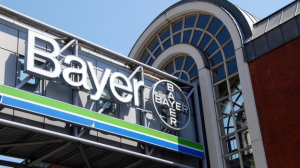Pharmaceutical and life sciences leader Bayer is expanding its small molecule drug discovery and research portfolio. A new acquisition will bring an innovative suite of strategies called chemoproteomics into the development process for allosteric modulators and protein degraders.
Bayer is paying $1.5 billion upfront to acquire San Diego-based startup Vividion Therapeutics, in addition to a potential $500 million in milestone payments. This early-stage company, founded by a trio of Scripps Research chemists in 2014, has previously scored investments from Roche, Celgene, and others to build a $500 million bankroll. Bayer has made it clear that it will not interfere with Vividion’s day-to-day operations, allowing the startup to “operate autonomously.”
Vividion carries out its research by using a fragment-based screening platform supplied with a collection of covalent fragments. The startup has uncovered over 800 novel binding pockets in more than 250 proteins by covalently tagging the reactive cysteine residues on various proteins housed in living or lysed cells. This has proven to be an efficient method of ascertaining potential for footholds in small molecules that might have been previously neglected or undiscovered. Upon securing successful protein connections, Vividion develops allosteric activators and inhibitors or molecules that influence protein-protein interactions.
As part of the deal, Bayer earns entry to its acquisition’s drug discovery programs. They study inhibitors and activators of NRF2, a transcription component that directs the expression of genes -- particularly ones that generate responses to oxidative stress, and may cause cell damage. NRF2 inhibitors and activators are intended to help treat some cancers and chronic inflammatory diseases, respectively.























